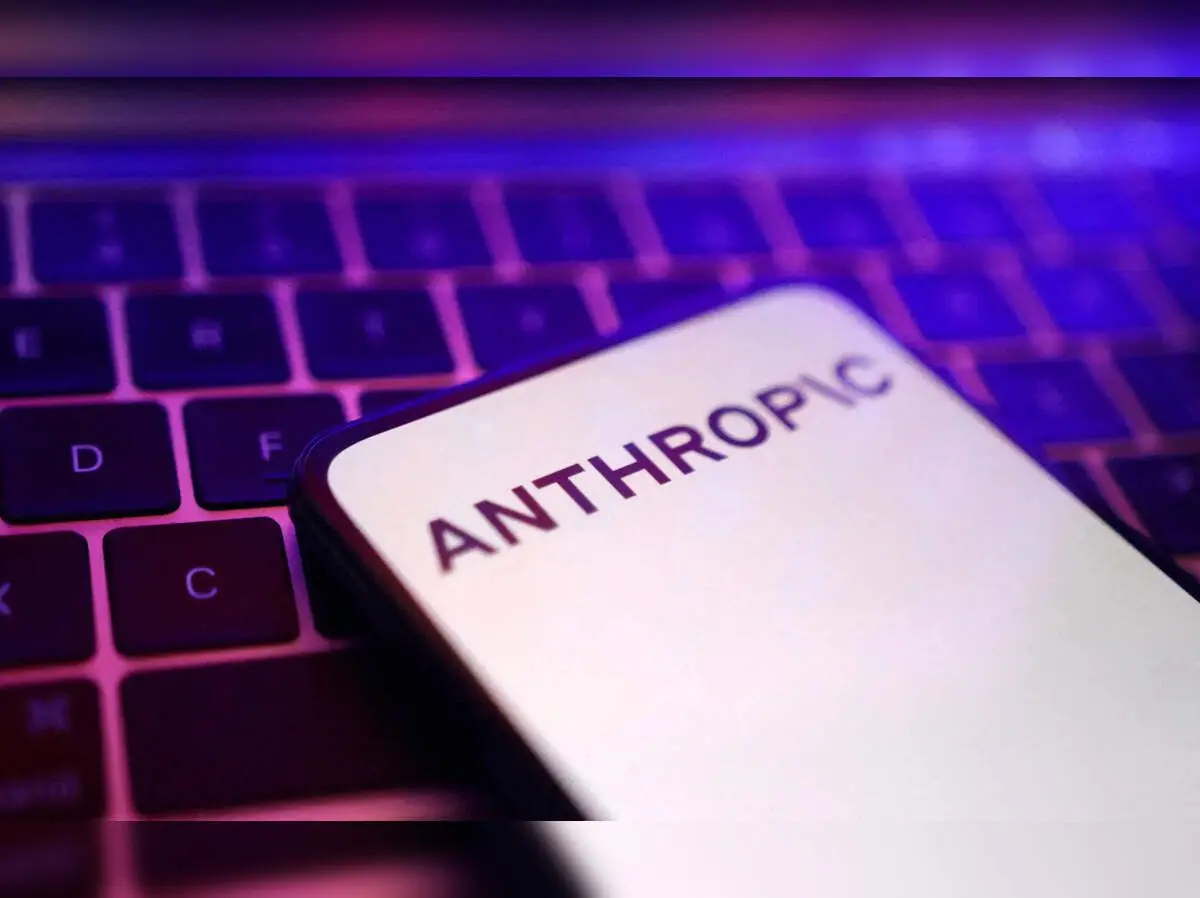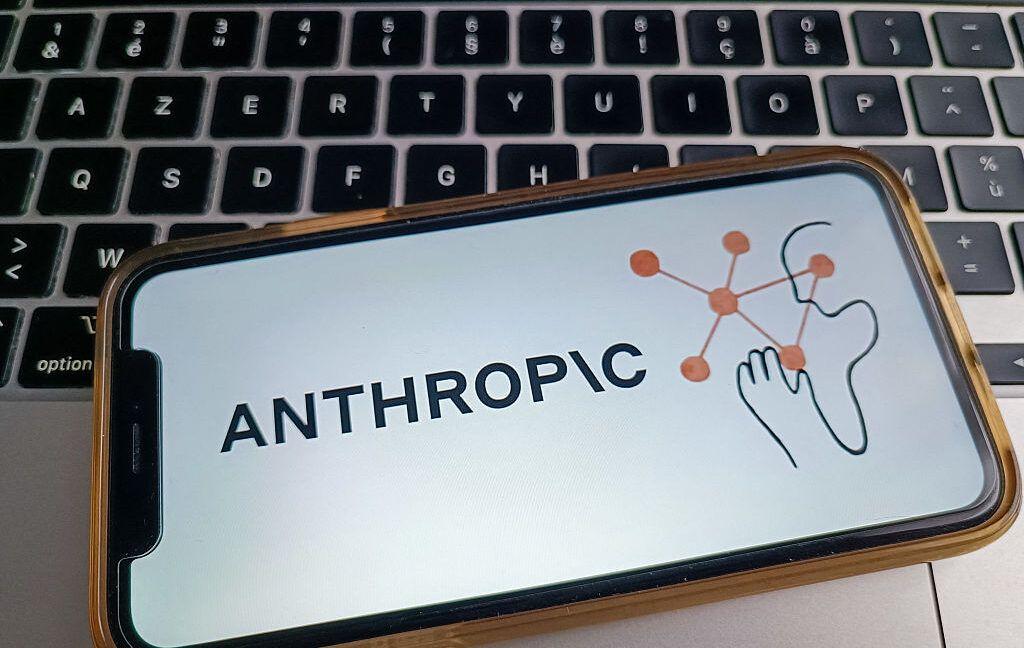Anthropic Faces Class-Action Lawsuit Over Alleged Copyright Infringement in AI Training
6 Sources
6 Sources
[1]
Anthropic will face a class-action lawsuit from US authors
Hayden Field is The Verge's senior AI reporter. An AI beat reporter for more than five years, her work has also appeared in CNBC, MIT Technology Review, Wired UK, and other outlets. A California federal judge ruled Thursday that three authors suing Anthropic over copyright infringement can bring a class action lawsuit representing all U.S. writers whose work was allegedly downloaded from libraries of pirated works. The filing alleges that Anthropic, the Amazon-backed OpenAI competitor behind the chatbot Claude, "violated the Copyright Act by doing Napster-style downloading of millions of works." It alleges that the company downloaded as many as seven million copies of books from libraries of pirated works. The new ruling impacts a lawsuit filed last August by authors Andrea Bartz, Charles Graeber, and Kirk Wallace Johnson, who alleged that Anthropic had "built a multibillion-dollar business by stealing hundreds of thousands of copyrighted books." Late last month, a federal judge sided with Anthropic to rule that training its AI models on legally-purchased books was fair use but noted the company would need to face a separate trial for using allegedly pirated books. It also follows the lawsuit Reddit filed against Anthropic last month, claiming that the AI company's bots had accessed Reddit more than 100,000 times since last July, after Anthropic had said it blocked them from doing so. The authors' lawsuit is part of a growing trend of media outlets, platforms, companies, and creatives either suing AI companies over copyright infringement -- for instance, Universal Music's 2023 lawsuit against Anthropic over "systematic and widespread infringement of their copyrighted song lyrics" -- or partnering up with them to willingly provide AI training data in order to get a slice of the profits.
[2]
US Authors Suing Anthropic Can Band Together in Copyright Class Action, Judge Rules
(Reuters) -A California federal judge ruled on Thursday that three authors suing artificial intelligence startup Anthropic for copyright infringement can represent writers nationwide whose books Anthropic allegedly pirated to train its AI system. U.S. District Judge William Alsup said the authors can bring a class action on behalf of all U.S. writers whose works Anthropic allegedly downloaded from "pirate libraries" LibGen and PiLiMi to create a repository of millions of books in 2021 and 2022. Alsup said Anthropic may have illegally downloaded as many as 7 million books from the pirate websites, which could make it liable for billions of dollars in damages if the authors' case is successful. Spokespeople for Anthropic did not immediately respond to a request for comment on the decision. An attorney for the authors declined to comment. Andrea Bartz, Charles Graeber and Kirk Wallace Johnson sued Anthropic last year, arguing that the Amazon- and Alphabet-backed startup used their books without permission or compensation to teach its chatbot Claude to respond to human prompts. The case is one of several high-stakes lawsuits brought by authors, news outlets and other copyright owners against companies including OpenAI, Microsoft and Meta Platforms over their AI training. AI companies argue their systems make fair use of copyrighted material to create new, transformative content. Alsup determined in June that Anthropic's AI training made fair use of authors' works, but said the company still violated their rights by saving pirated copies of their books to a "central library of all the books in the world" that would not necessarily be used for AI training. Alsup said on Thursday the three authors could represent all writers whose books Anthropic allegedly downloaded from LibGen and PiLiMi, rejecting Anthropic's argument that identifying all of the copyright-eligible works and their authors would be impractical. (Reporting by Blake Brittain in Washington; Editing by David Bario and Rod Nickel)
[3]
US authors suing Anthropic can band together in copyright class action, judge rules - The Economic Times
US District Judge William Alsup said Anthropic may have illegally downloaded as many as 7 million books from the pirate websites, which could make it liable for billions of dollars in damages if the authors' case is successful.A California federal judge ruled on Thursday that three authors suing artificial intelligence startup Anthropic for copyright infringement can represent writers nationwide whose books Anthropic allegedly pirated to train its AI system. US District Judge William Alsup said the authors can bring a class action on behalf of all US writers whose works Anthropic allegedly downloaded from "pirate libraries" LibGen and PiLiMi to create a repository of millions of books in 2021 and 2022. Alsup said Anthropic may have illegally downloaded as many as 7 million books from the pirate websites, which could make it liable for billions of dollars in damages if the authors' case is successful. Spokespeople for Anthropic did not immediately respond to a request for comment on the decision. An attorney for the authors declined to comment. Andrea Bartz, Charles Graeber and Kirk Wallace Johnson sued Anthropic last year, arguing that the Amazon- and Alphabet-backed startup used their books without permission or compensation to teach its chatbot Claude to respond to human prompts. The case is one of several high-stakes lawsuits brought by authors, news outlets and other copyright owners against companies including OpenAI, Microsoft and Meta Platforms over their AI training. AI companies argue their systems make fair use of copyrighted material to create new, transformative content. Alsup determined in June that Anthropic's AI training made fair use of authors' works, but said the company still violated their rights by saving pirated copies of their books to a "central library of all the books in the world" that would not necessarily be used for AI training. Alsup said on Thursday the three authors could represent all writers whose books Anthropic allegedly downloaded from LibGen and PiLiMi, rejecting Anthropic's argument that identifying all of the copyright-eligible works and their authors would be impractical.
[4]
Authors Can Sue Anthropic Over Alleged AI Book Piracy, Judge Rules | PYMNTS.com
By completing this form, you agree to receive marketing communications from PYMNTS and to the sharing of your information with our sponsor, if applicable, in accordance with our Privacy Policy and Terms and Conditions. According to Reuters, U.S. District Judge William Alsup ruled on Thursday that authors Andrea Bartz, Charles Graeber, and Kirk Wallace Johnson can represent a nationwide class of writers whose works were allegedly pulled from online "pirate libraries" -- specifically LibGen and PiLiMi -- by Anthropic in 2021 and 2022. These unauthorized downloads were purportedly used to build a massive digital repository of books intended for training its AI model Claude. Per Reuters, the court found that Anthropic may have illegally downloaded as many as seven million books from the two piracy websites. If the plaintiffs are successful in proving copyright infringement, the resulting damages could potentially reach into the billions of dollars. Judge Alsup rejected Anthropic's position that identifying all impacted authors and eligible works would be too complex for a class-action suit. Instead, he affirmed that the three authors could adequately represent the broader group of writers whose books were allegedly misappropriated. Read more: States Move to Regulate Brain Data Collected by Wearable Consumer Devices The case is part of a growing wave of litigation against AI developers by authors, journalists, and content creators, who argue that their intellectual property is being exploited to fuel rapid advances in generative AI without permission or compensation. Similar suits have been filed against tech giants such as OpenAI, Microsoft, and Meta Platforms. While Anthropic and other AI companies have contended that their use of copyrighted material qualifies as fair use under existing legal standards, Judge Alsup previously ruled in June that even if training on such content were considered transformative, the act of compiling and storing pirated books in a central library still constituted a potential violation of copyright law. As of Thursday, representatives for Anthropic have not issued a response to the ruling. The plaintiffs' attorney also declined to comment, Reuters noted.
[5]
U.S. authors suing Anthropic can band together in copyright class action, judge rules
A California federal judge ruled on Thursday that three authors suing artificial intelligence startup Anthropic for copyright infringement can represent writers nationwide whose books Anthropic allegedly pirated to train its AI system. U.S. District Judge William Alsup said the authors can bring a class action on behalf of all U.S. writers whose works Anthropic allegedly downloaded from "pirate libraries" LibGen and PiLiMi to create a repository of millions of books in 2021 and 2022. Alsup said Anthropic may have illegally downloaded as many as 7 million books from the pirate websites, which could make it liable for billions of dollars in damages if the authors' case is successful. Spokespeople for Anthropic did not immediately respond to a request for comment on the decision. An attorney for the authors declined to comment. Andrea Bartz, Charles Graeber and Kirk Wallace Johnson sued Anthropic last year, arguing that the Amazon and Alphabet-backed startup used their books without permission or compensation to teach its chatbot Claude to respond to human prompts. The case is one of several high-stakes lawsuits brought by authors, news outlets and other copyright owners against companies including OpenAI, Microsoft and Meta Platforms over their AI training. AI companies argue their systems make fair use of copyrighted material to create new, transformative content. Alsup determined in June that Anthropic's AI training made fair use of authors' works, but said the company still violated their rights by saving pirated copies of their books to a "central library of all the books in the world" that would not necessarily be used for AI training. Alsup said on Thursday the three authors could represent all writers whose books Anthropic allegedly downloaded from LibGen and PiLiMi, rejecting Anthropic's argument that identifying all of the copyright-eligible works and their authors would be impractical. ---
[6]
US authors suing Anthropic can band together in copyright class action, judge rules
(Reuters) -A California federal judge ruled on Thursday that three authors suing artificial intelligence startup Anthropic for copyright infringement can represent writers nationwide whose books Anthropic allegedly pirated to train its AI system. U.S. District Judge William Alsup said the authors can bring a class action on behalf of all U.S. writers whose works Anthropic allegedly downloaded from "pirate libraries" LibGen and PiLiMi to create a repository of millions of books in 2021 and 2022. Alsup said Anthropic may have illegally downloaded as many as 7 million books from the pirate websites, which could make it liable for billions of dollars in damages if the authors' case is successful. Spokespeople for Anthropic did not immediately respond to a request for comment on the decision. An attorney for the authors declined to comment. Andrea Bartz, Charles Graeber and Kirk Wallace Johnson sued Anthropic last year, arguing that the Amazon- and Alphabet-backed startup used their books without permission or compensation to teach its chatbot Claude to respond to human prompts. The case is one of several high-stakes lawsuits brought by authors, news outlets and other copyright owners against companies including OpenAI, Microsoft and Meta Platforms over their AI training. AI companies argue their systems make fair use of copyrighted material to create new, transformative content. Alsup determined in June that Anthropic's AI training made fair use of authors' works, but said the company still violated their rights by saving pirated copies of their books to a "central library of all the books in the world" that would not necessarily be used for AI training. Alsup said on Thursday the three authors could represent all writers whose books Anthropic allegedly downloaded from LibGen and PiLiMi, rejecting Anthropic's argument that identifying all of the copyright-eligible works and their authors would be impractical. (Reporting by Blake Brittain in Washington; Editing by David Bario and Rod Nickel)
Share
Share
Copy Link
A federal judge has ruled that three authors can represent a nationwide class of writers in a lawsuit against AI startup Anthropic for allegedly using pirated books to train its AI system, potentially exposing the company to billions in damages.
Judge Approves Class-Action Status for Authors' Lawsuit Against Anthropic
In a significant development for the ongoing debate over AI and copyright law, U.S. District Judge William Alsup has ruled that three authors can bring a class-action lawsuit against AI startup Anthropic on behalf of all U.S. writers whose works were allegedly pirated for AI training purposes
1
2
3
.The Allegations and Potential Consequences
The lawsuit, filed by authors Andrea Bartz, Charles Graeber, and Kirk Wallace Johnson, accuses Anthropic of "Napster-style downloading" of millions of copyrighted works
1
. According to the ruling, Anthropic may have illegally downloaded as many as 7 million books from pirate websites LibGen and PiLiMi in 2021 and 20222
3
4
.
Source: BNN
If the authors' case is successful, Anthropic could be liable for billions of dollars in damages
2
3
. This potential financial impact underscores the high stakes of the legal battle and its implications for the AI industry as a whole.The Broader Context of AI and Copyright
This case is part of a growing trend of legal challenges against AI companies over copyright infringement. Similar lawsuits have been filed against other tech giants, including OpenAI, Microsoft, and Meta Platforms
2
5
. These legal actions reflect the ongoing tension between rapid AI advancement and the protection of intellectual property rights.Previous Rulings and Fair Use Debate
In a previous ruling in June, Judge Alsup determined that Anthropic's AI training on legally-purchased books constituted fair use
1
. However, he noted that the company would still need to face a separate trial for using allegedly pirated books1
5
.The judge stated that while AI training might be considered transformative use, saving pirated copies of books to a "central library of all the books in the world" that may not necessarily be used for AI training could still violate copyright law
3
5
.Related Stories
Implications for the AI Industry

Source: ET
This ruling allows the authors to represent a broader group of writers whose works may have been used without permission or compensation to train Anthropic's chatbot, Claude
2
4
. It rejects Anthropic's argument that identifying all impacted authors and eligible works would be too complex for a class-action suit4
.The outcome of this case could have far-reaching implications for how AI companies approach data collection and training, potentially forcing them to reconsider their practices and relationships with content creators
1
5
.Anthropic's Response and Next Steps
As of the latest reports, spokespeople for Anthropic have not responded to requests for comment on the decision
2
3
5
. The case is expected to proceed, with the potential to set important precedents for the intersection of AI development and copyright law.References
Summarized by
Navi
Related Stories
Authors Sue AI Company Anthropic Over Copyright Infringement
20 Aug 2024

Anthropic Reaches Historic Settlement with Authors in AI Copyright Lawsuit
27 Aug 2025•Policy and Regulation

Anthropic's $1.5 Billion Settlement Marks Landmark Victory for Authors in AI Copyright Battle
26 Sept 2025•Policy and Regulation

Recent Highlights
1
Pentagon threatens to cut Anthropic's $200M contract over AI safety restrictions in military ops
Policy and Regulation

2
ByteDance's Seedance 2.0 AI video generator triggers copyright infringement battle with Hollywood
Policy and Regulation

3
OpenAI closes in on $100 billion funding round with $850 billion valuation as spending plans shift
Business and Economy





